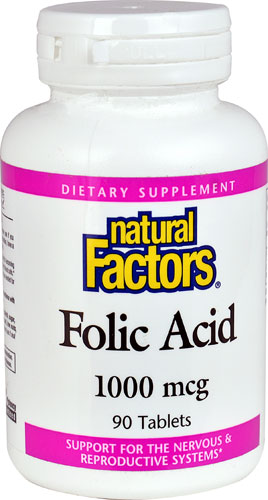Learning that a child has a birth defect is frightening for any parent. Each year, 8 million children born around the world are diagnosed with such a condition, according to the March of Dimes.
The good news is that with enough love and attention, these children can grow up to have normal, happy lives.
"People with birth defects can be -- and usually are -- happy and productive members of society," says Dr. Anthony Scialli, an obstetrician-gynecologist and teratologist in Washington, D.C.
January is National Birth Defects Prevention Month. Fortunately, there are several things you can do before having kids that lower the risk of birth defects.
Preventing birth defects
Avoiding alcohol during pregnancy is the first step to reducing the risk of birth defects in a child, Scialli says.
"Alcohol is the single most common known cause of birth defects," he says. "We don’t know the amount of alcohol that is safe, so we recommend no alcohol intake."
Even if you are not planning on becoming pregnant – but are in your childbearing years – you should take a multivitamin every day, says Dr. Lisa Waddell, deputy medical officer at the March of Dimes.
“If you take folic acid before and during early pregnancy, it can help prevent birth defects of the brain and spine called neural tube defects,” she says.
Waddell also recommends several other lifestyle changes that can boost your own health, and increase the odds you’ll have a healthy baby. They include:
- Staying safe from viruses and infections that may affect pregnancy
- Quitting smoking
- Avoiding taking street drugs
“Schedule a preconception checkup with your doctor to make sure you’re healthy and that your body is ready for pregnancy,” she says.
The Centers for Disease Control and Prevention recommends being updated on all vaccines – such as those for the flu and whooping cough – before becoming pregnant.
The CDC also urges aspiring mothers to protect against and immediately treat insect bites, and to practice good hygiene, such as washing your hands regularly with soap and water.
If you are being treated for a chronic illness – including high blood pressure, diabetes, heart problems or kidney problems – visit your obstetrician prior to having children, Scialli says.
“In most cases, treatment of the chronic illness should be continued during pregnancy, although the medications may need to be adjusted,” he says.
Scialli says the MotherToBaby website is another good resource. It is a website associated with the Organization of Teratology Information Specialists that provides information on the safety of medications and other exposures during pregnancy and while breastfeeding.
Managing your child’s birth defect
Of course, none of these steps guarantee your child will not have a birth defect. As scary as such a diagnosis can seem, know that your child can still live a full life.
“Most birth defects can be treated to improve the health and function of the child,” Scialli says.
If you have concerns about your child’s health, discuss them with your pediatrician, Waddell says.
“If your baby is born with a birth defect or other health condition, he may need special care at birth and later in life,” she says.
Pediatric specialists -- such as a pediatric cardiologist or neurologist -- can give you more information and guidance about the specialized care your baby may need, Waddell says.
Rather than considering a child with a birth defect to be disabled, think of them as “differently abled,” Scialli says.
So, don’t underestimate your child’s resilience and ability to thrive. “They learn to adapt to the limitations associated with their problems,” Scialli says.
Finally, you can find support at the March of Dimes Share Your Story webpage.




